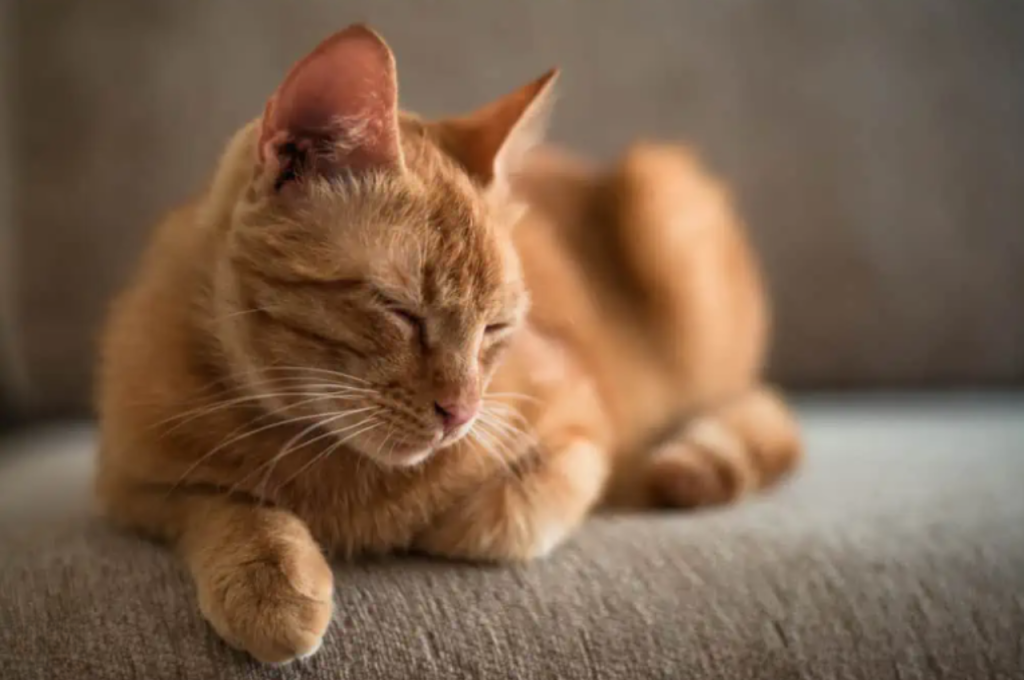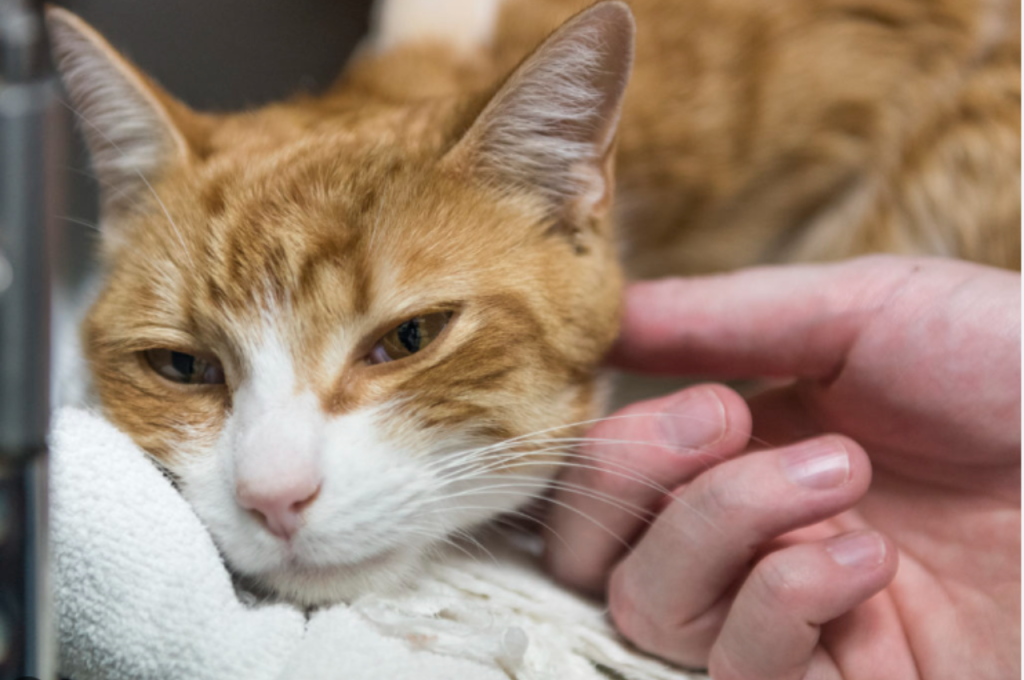Cats may ignore you because they are independent creatures with their unique personalities and preferences. Cats are known for their independent nature and may choose to ignore their owners at times.
This behavior is often influenced by their personalities and preferences. While some cats enjoy socializing and affectionate interaction, others may prefer solitude or be easily overwhelmed by too much attention. Additionally, cats are highly observant animals who may choose to ignore their humans if they sense discomfort, tension, or inconsistency in their environment.
Understanding and respecting a cat’s need for independence and providing them with a calm and comfortable environment can help strengthen the bond between the cat and the owner.
The Mysterious Nature of Cats
Cats are often revered for their enigmatic nature, characterized by a blend of independence, curiosity, and aloofness. Understanding the mysterious aspects of feline behavior can deepen our appreciation for these fascinating animals.

Instinctual Behavior
Cats have inherent patterns of behavior that govern their interactions with humans and their environment.
- Hunting is an instinct for cats, leading them to sometimes ignore humans.
- Solitary habits ingrained in their nature can result in independence.
Independent Creatures
Cats exhibit a remarkable level of independence in their daily lives and actions.
- Self-sufficiency is a key trait, making them less reliant on constant attention.
- Territorial instincts may cause them to prioritize their own space over human interaction.
Understanding Cat Communication
As cat owners, we’ve all experienced the frustrating situation when our beloved feline friends seem to ignore our presence. Cats have a unique way of expressing themselves, which may be different from what we are used to. Understanding cat communication is essential in building a strong bond with your pet. In this blog post, we will explore the various ways cats communicate, including their body language cues and vocalizations.
Body Language Cues
Cats possess a rich repertoire of body language cues, which they use to convey their feelings and intentions. By paying attention to these cues, you can better understand what your cat is trying to communicate. Here are some common body language cues you should look out for:
- Eyes: A cat’s eyes can speak volumes. When your cat looks at you with half-closed eyes, it’s a sign of contentment and trust. On the other hand, dilated pupils may indicate fear or aggression.
- Posture: Pay attention to how your cat holds itself. If it crouches low to the ground with its tail tucked between its legs, it may be feeling frightened or threatened. On the contrary, a relaxed and upright posture signals a content and confident cat.
- Tail: The position and movement of a cat’s tail can reveal its mood. A straight-up tail with a slight curve at the end indicates friendliness, while an aggressively swishing tail may suggest agitation.
- Ears: Watch for your cat’s ear position. Ears held forward show curiosity and interest, while backward or flattened ears indicate fear or aggression.
Vocalizations
In addition to body language, cats use vocalizations to communicate with their human companions. While each cat has its unique voice, there are common vocalizations that can give you insight into your cat’s emotions. Here are a few:
- Meowing: Meowing is usually associated with cats communicating with humans. Cats may meow to get your attention, express hunger, or even just say hello.
- Purring: Purring is a comforting sound made by cats and is often associated with contentment and relaxation. It can signify that your cat feels safe and happy in your presence.
- Hissing: Hissing is a defensive sound made by cats when they feel threatened or scared. It serves as a warning to stay away.
- Growling: Similar to hissing, growling is a vocalization cats use to show aggression and establish dominance. It’s important to give your cat space when it growls.
By understanding these body language cues and vocalizations, you can better interpret your cat’s behavior and respond accordingly. Remember, every cat is unique, so it’s essential to pay attention to their individual preferences and gestures to deepen your bond with your feline companion.
Factors Influencing Cat Behavior
Understanding the factors that influence a cat’s behavior is vital for establishing a harmonious and fulfilling relationship with your feline companion. Various elements, ranging from past trauma or neglect to environmental stressors, can significantly impact the way a cat interacts with its surroundings and with humans.

Past Trauma or Neglect
Cats that have experienced past trauma or neglect may have difficulty trusting humans or forming close bonds. Such experiences can lead to a heightened sense of fear and wariness, causing the cat to withdraw and seem aloof. Creating a secure and nurturing environment can help these cats gradually build trust and overcome their past traumas.
Environmental Stressors
Environmental stressors, such as loud noises, changes in routine, or the presence of unfamiliar animals, can profoundly affect a cat’s behavior. These stressors may lead to heightened anxiety, aggressive tendencies, or a desire to seek refuge and solitude. Providing a calm and consistent environment and minimizing exposure to potential stress triggers can help alleviate these behaviors.
The Bond Between Humans and Cats
Cats are known for their independent nature, often leaving us baffled as to why they sometimes seem to ignore us. However, understanding the bond between humans and cats is essential to decipher their behavior. Cats are unique creatures that form strong connections with their human counterparts, often displaying affection and loyalty in their enigmatic way.
Trust Building
The bond between humans and cats is built on trust, which is a crucial factor in their relationship. Cats are cautious creatures, and they need time to build trust with their human companions. Engaging in activities that make a cat feel safe and secure is essential for trust-building. Providing a calm and comforting environment, as well as earning a cat’s trust through positive interactions, will strengthen the bond between a cat and its owner.
The Importance of Routine
Establishing a consistent routine is integral in strengthening the bond between humans and cats. Cats thrive in a predictable environment where their daily needs are consistently met. Maintaining a regular feeding schedule, and playtime, and providing a comfortable resting place are vital to fostering a strong bond. Consistency helps cats feel secure and deepens their connection with their human companions.
Cat Personalities and Preferences
Wondering why your cat seems to ignore you? Cats have unique personalities and preferences, and may simply be following their instincts. It’s common for cats to want attention on their terms, so understanding their behavior and giving them space when needed can help strengthen the bond between you and your furry friend.
Introverted vs. Extroverted Cats
Cats, just like humans, have their unique personalities and preferences. Some cats tend to be more outgoing and social, while others are more introverted and prefer their alone time. Understanding the difference between these two types of personalities can shed some light on why your cat may sometimes ignore you. Introverted cats are typically more reserved and independent. They often enjoy spending time alone, finding their cozy nooks and corners where they can relax in solitude. These cats may not seek out attention or affection as frequently as their extroverted counterparts. Instead, they may prefer to observe their surroundings from a distance and choose when to engage with their owners.
On the other hand, extroverted cats thrive on social interactions. They are often more playful, curious, and eager for attention. These cats may follow their owners around the house, constantly seeking company and affection. They enjoy being in the spotlight and may not easily tire of interactions. If you have an extroverted cat, their ignoring behavior may be less frequent, as they actively seek out human companionship.
Preferred Ways of Interaction
Understanding your cat’s preferred ways of interaction is crucial in deciphering their behavior. While some cats may enjoy physical affection such as being petted or cuddled, others may have different preferences. Cats, being natural hunters, often appreciate playtime sessions that mimic hunting behavior. They may enjoy chasing after toys, pouncing on feathers, or engaging in interactive games with their owners. These activities stimulate their senses and allow them to release their pent-up energy. If your cat seems to be ignoring you, initiating a playtime session might be the key to gaining their attention and engagement.
Additionally, providing your cat with appropriate scratching surfaces and toys can also help redirect their attention. Cats have an instinct to scratch, and by providing them with suitable alternatives, you can prevent them from directing their attention elsewhere, such as ignoring you. It’s important to note that every cat is unique, and their preferences may vary. Observing their body language and responses to different interactions can give you valuable insights into what they enjoy. Through trial and error, you can discover the activities and interactions that truly capture your cat’s interest. Understanding your cat’s personality and preferred ways of interaction can help in deciphering their occasional ignoring behavior. Remember, patience and respect for their individuality are key to building a strong bond with your feline companion.
Addressing Behavioral Issues
When it comes to addressing behavioral issues in cats, it’s important to consider various factors that may be causing them to ignore you.
Consulting With A Veterinarian or Behaviorist
If your cat is consistently ignoring you, seek professional help from a veterinarian or behaviorist.
Creating Enriching Environments
Enhance your cat’s living space with toys, scratching posts, and places to climb to keep them engaged.
Tips for Strengthening the Relationship
Find out why your cat ignores you and learn useful tips to strengthen your relationship. Discover simple strategies to improve communication and bond with your feline companion.

Respecting Boundaries
Set clear boundaries and provide your cat with space to retreat when needed.
Avoid forcing interactions, as it can make your cat feel overwhelmed.
- Respect your cat’s cues like flattened ears or tail flicking.
- Allow your cat to approach you on their terms.
Engaging in Play and Interactive Activities
Provide stimulating toys to keep your cat entertained and engaged.
- Engage in interactive play sessions to bond with your cat.
- Use laser pointers or feather wands to encourage movement.
Offer treats as rewards during playtime to reinforce positive associations.
Frequently Asked Questions on Why Do Cats Ignore You?
Sure! Here are some frequently asked questions about do cats ignore you:
Q. Why do cats ignore their owners sometimes?
Cats may ignore their owners due to their independent nature and need for personal space. This behavior is a common trait among cats and does not necessarily indicate a lack of affection. Providing your cat with appropriate attention and allowing them to approach you on their terms can help foster a strong bond.
Q. What can cause a cat to suddenly ignore their owner?
Sudden changes in a cat’s behavior, such as ignoring their owner, may be attributed to stress, illness, or environmental changes. It is essential to observe the cat’s overall behavior and consult with a veterinarian if the behavior persists to determine any underlying issues that may be influencing its aloofness.
Q. How to regain a cat’s attention when they ignore you?
Engaging in interactive play, providing enticing toys, and creating a stimulating environment can capture a cat’s interest and encourage interaction. Additionally, offering treats, gentle affection, and respecting their boundaries can help rebuild trust and strengthen the bond between the cat and their owner.
Conclusion
To sum up, there are several reasons why cats may ignore you, including their independent nature and instincts. Understanding their behavior and providing the right environment can help strengthen the bond with your feline friend. Remember to give them space when needed, provide mental and physical stimulation, and establish a routine.
By doing so, you can enhance your cat’s trust and build a stronger connection. Happy cat-parenting!
